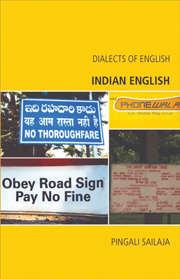Book contents
- Frontmatter
- Contents
- Preface
- Acknowledgements
- Abbreviations, Symbols and other Notational Conventions Used
- 1 Introduction
- 2 Phonetics and Phonology
- 3 Morphosyntax
- 4 Lexis and Discourse
- 5 History and Changes in Progress
- 6 Survey of Previous Work and Annotated Bibliography
- 7 Sample Texts
- Bibliography of Cited Works
- Index
7 - Sample Texts
Published online by Cambridge University Press: 05 August 2013
- Frontmatter
- Contents
- Preface
- Acknowledgements
- Abbreviations, Symbols and other Notational Conventions Used
- 1 Introduction
- 2 Phonetics and Phonology
- 3 Morphosyntax
- 4 Lexis and Discourse
- 5 History and Changes in Progress
- 6 Survey of Previous Work and Annotated Bibliography
- 7 Sample Texts
- Bibliography of Cited Works
- Index
Summary
The samples in this chapter are divided according to domains of use. They are drawn from a wide range of topics and represent samples of written and spoken forms across the centuries. Samples of the different varieties of IE – standard Indian English and non-standard – are interspersed below. It is evident here that different degrees of proficiency existed earlier, much as they do in modern times. Brief comments are given where relevant. The wide range that exists in the grammar, lexis and style of IE is demonstrated to some extent in this chapter.
Literature
Literature is written in standard English and is devoid of non-standard constructions, as (1) below shows. Where non-standard or ‘Indian’ constructions are used, it is done with a deliberate purpose.
1794: The Travels of Dean Mahomet
Dear Sir,
Having remained some time in Dacca, we proceeded on our voyage to Calcutta, and, in about two days reached the river Sunderbun, which is extremely narrow, and winds into many branches, that feast the delighted eye with a variety of new scenery: the land on each side is low, and covered with great trees, close to the water's edge: the water was smooth and transparent when we passed through, and appeared like an extended mirror reflecting the tall trees that grew upon each border. Creation seemed to be at rest, and no noise disturbed the silence which reigned around; save, now and then, the roaring of wild beasts in the adjacent woods: the scene was truly great, and raised into unaffected grandeur, without the assistance of art. […]
- Type
- Chapter
- Information
- Indian English , pp. 133 - 158Publisher: Edinburgh University PressPrint publication year: 2009



